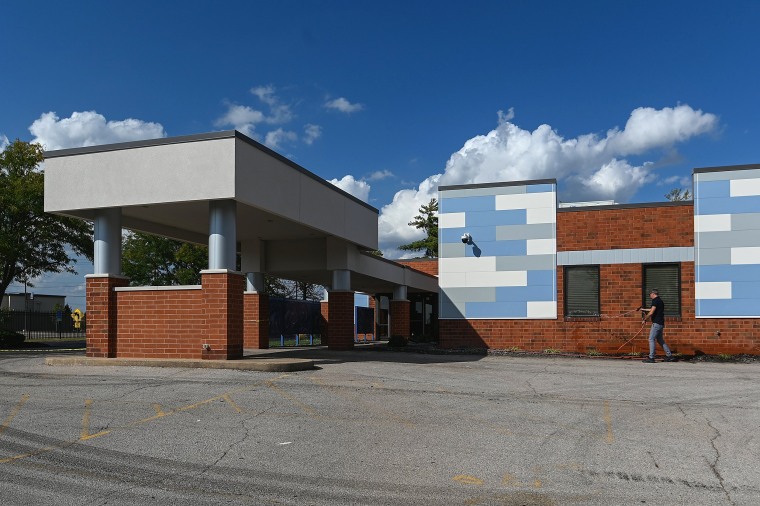Less than 15 miles from the border of Missouri, a state that is barely holding on to its last abortion clinic, Planned Parenthood has quietly erected one of the largest abortion clinics in the nation.
The 18,000-square-foot “megaclinic,” which will open later this month, was constructed in Fairview Heights, Illinois, and is equipped to provide services to 11,000 patients, Planned Parenthood announced Wednesday. CBS News first reported the clinic's opening.
The new facility will be taking the place of an older clinic, which had a much smaller bandwidth to handle patients.
“Close to 5,000 people sought care at our Fairview Heights health center last year alone, and this new center will allow us to serve even more,” Yamelsie Rodriguez, president and CEO of Planned Parenthood of the St. Louis Region and Southwest Missouri, said in a statement.
The new clinic will offer both medication and surgical abortions, as well as family planning services, annual exams, cancer screenings, STI testing, and HIV prevention, according to a statement by the organization.
Planned Parenthood used a shell company to construct the facility in order to complete it without backlash and interference from protesters, Colleen McNicholas, the chief medical officer of Planned Parenthood of the St. Louis Region and Southwest Missouri, said in an interview with CBS News.
Previous clinic projects have been bombarded with a slew of issues when openly built, she added. Contractors would sometimes bow out or refuse to cooperate due to anti-abortion activists who would put pressure on them or post negative reviews on their business social media sites, she said.
Missouri stands as one of the most restrictive states for abortion access despite a federal judge blocking a bill signed by Missouri Gov. Mike Parson which outlaws abortions after eight weeks of pregnancy, including in the case of rape or incest.
Missouri still requires several hurdles before a woman can get an abortion, including a 72-hour waiting period and state-mandated counseling that includes information designed to discourage the patient from having an abortion, according to the Guttmacher Institute, a research organization that studies reproductive health rights.
The state has also been deadlocked in a series of legal showdowns involving its last abortion clinic in St. Louis.
Missouri's health department decided not to renew the health center's abortion license as of June 1 after an inspection in March found problems, including “at least one incident in which patient safety was gravely compromised,” forcing the clinic to shut down. The clinic refuted those claims in several legal back-and-forths. Planned Parenthood argued that the licensing battle is part of a greater anti-abortion effort by the state's administration.
A judge allowed the state's sole abortion provider to continue to operate until the issue is adequately resolved in court in October.
“While we continue the fight to maintain access in Missouri, we are excited to expand our abortion services in Illinois,” McNicholas said.
Even though its neighbor has dealt with a series of blockades on several fronts, Illinois has touted itself as a haven for a woman’s right to choose.
Earlier this year, the state passed the "Reproductive Health Act," legislation that establishes access to abortion as a fundamental right.
Illinois has openly welcomed women in surrounding states to seek a safe legal abortion and Planned Parenthood’s new clinic was built to serve those who will be traveling to the state to receive reproductive health care, McNicholas added.
“The new health center is a testament to the needs of the greater bi-state region and our commitment to provide, protect and expand access to health care, no matter what,” she said. “We look forward to joining other abortion providers across the area, including our partners at Hope Clinic for Women, as regional leaders in the quest to ensure every person can control their reproductive destiny.”
